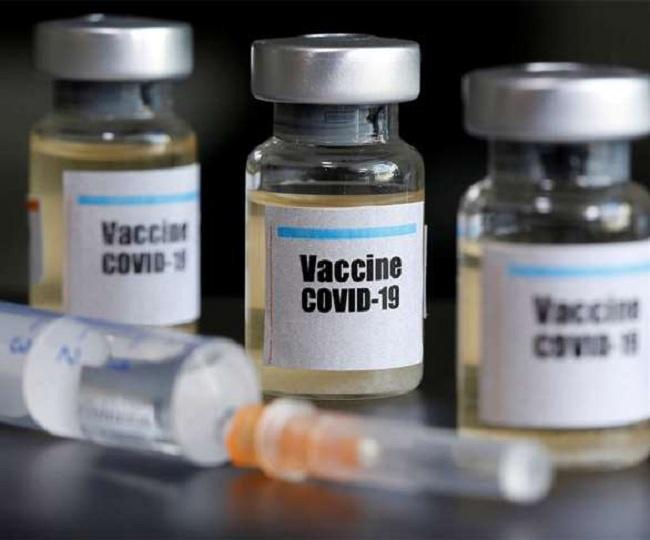Can Certain COVID-19 Vaccines Increase Susceptibility to HIV Infection?

Image Courtesy: Jagran English
Few days back, a cautionary letter written by some scientists was published in the journal Lancet. In it, the scientists have said that certain COVID-19 vaccines, if they come into public sphere, might complicate things, especially because these vaccines have a chance to increase the risk of HIV infection in some people belonging to places that have an infection high rate for the AIDS causing virus.
Certain COVID-19 vaccines have used a variety of adenovirus, a common virus that causes cold, to deliver the genetic material of the SARS-CoV-2 virus. The adenovirus variety called ad5 is used as vector in these vaccines. The HIV risk could arise, as argued by the authors of the cautionary letter, due to the ad5 vector.
The letter uses reference from earlier experience of ad5 as vector in delivering an HIV vaccine. Two vaccine programs namely, the STEP and the Phambili trials, used the ad5 vector and scientists soon realised that using this vector could increase the susceptibility of the AIDS virus in people. An interim study of the STEP trial found that uncircumcised men who were naturally infected with ad5 before they received the HIV vaccine, specifically became vulnerable to the HIV virus infection.
To understand what could be the implication of using the ad5 vector in COVID-19 vaccines and what is the science behind the HIV vaccine experience, NewsClick approached Satyajit Rath of IISER Pune, a noted immunologist. Here’s an excerpt from the interview:
NC: Should it be considered a matter of precaution in using ad5 vectored COVID virus as the scientists argue? Is it a matter of concern at all?
SR: Yes, it is certainly a matter of concern. However, some context would be valuable. Firstly, ad5 and other human adenoviruses as vaccine vectors have always been worrisome, simply because so many people already have antibodies against them. These 'anti-vector' antibodies could complicate the immune responses to the intended target that the vector is delivering (This is why the 'Oxford' COVID-19 vaccine candidate uses a chimpanzee adenovirus, so that these difficulties can be possibly sidestepped). Secondly, the HIV/SIV-related data of concern, on which this Lancet letter is based, was quite modest with a fair amount of inconsistency. And thirdly, neither 'empty' adenoviral vectors nor actual adenovirus vaccinations seemed to increase the risk of SIV or HIV (respectively) occurrence. So yes, there is some concern, but not a major worry as yet. I think it may well warrant asking for HIV status monitoring in large-scale COVID-19 vaccine trials based on adenoviral vectors, perhaps.
NC: In the STEP and Phambili trials, the vaccine was against HIV and the ad5 vector consisted of the genetic material of the HIV virus itself. In the case of COVID vaccine, the ad5 vector has the genetic material of SARS-CoV-2. So, the question is how come ad5 containing the genetic material of a different virus could increase the risk of HIV infection as argued by the scientists?
SR: I do not think that they are (or can be) making an argument for a particular mechanism. I think they are simply arguing for an 'abundance of caution', as it were. That said, the argument is the following: adenovirus infections are common, and are 'mucosal', meaning that they occur in tissues like the gut, respiratory airways, urinary and genital tracts. So there is always an immune response likely to be going on against adenoviruses in these tissues in many people, at any given time. When an adenovirus-based vaccine is given (whatever else it may be carrying), it is possible that it will stimulate these immune cells (T cells, mostly) in mucosal tissues. Now, HIV also comes in through such mucous linings and infects such cells there when they are activated. So, the argument goes, adenoviral immunisation may increase the availability of HIV-infectable immune cells in mucosal linings. Clearly, this is not well supported by the evidence.
NC: Could it be concluded that ad5 itself has the ability to induce HIV infection or at least increase the risk of it?
SR: It is explained already in the previous question. In a nutshell, adenoviral immunisation may increase the availability of HIV-infectable immune cells in mucosal linings.
So, yes, the ad5 vectored vaccines against COVID19 is of concern, but as of now, nothing conclusively could be ascertained. It is better, as argued by the scientists of the Lancet letter, to have extra precautionary measures when trials of such vaccines are conducted in places that have a high rate of HIV incidence.
Get the latest reports & analysis with people's perspective on Protests, movements & deep analytical videos, discussions of the current affairs in your Telegram app. Subscribe to NewsClick's Telegram channel & get Real-Time updates on stories, as they get published on our website.














